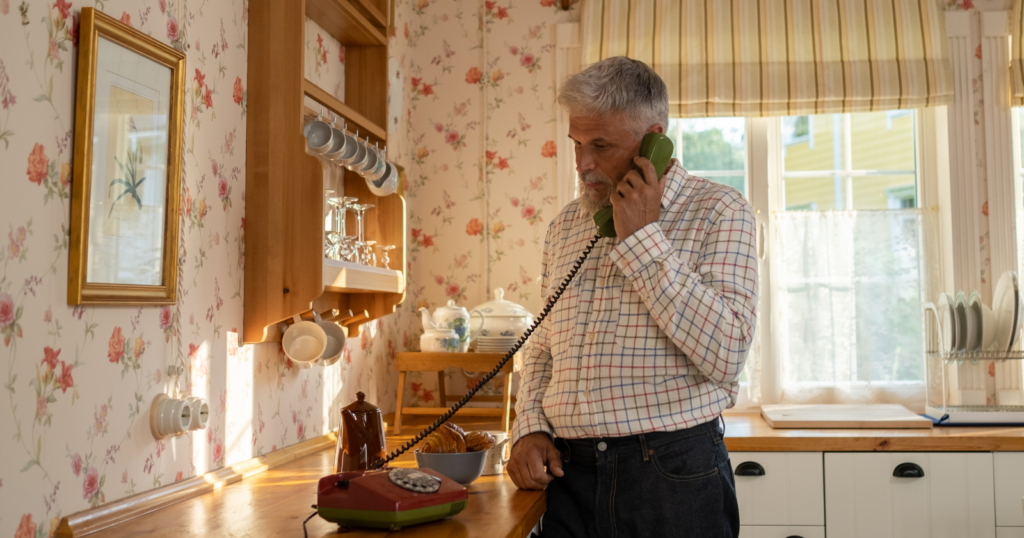Navigating relationships is often about finding balance. It’s about knowing how to establish healthy boundaries with your partner without stepping on toes.
The key lies in communication. Setting boundaries doesn’t mean you’re pushing your partner away. On the contrary, it’s about creating a space where both of you can thrive.
I’m here to guide you through this delicate process. I’ll share with you seven ways to set boundaries without causing offense.
These tips will help you ensure that your relationship remains harmonious and respectful while still meeting your personal needs. Let’s dive in, shall we?
1) Open communication
Nothing beats a good old-fashioned conversation when it’s about setting boundaries.
The thing is, we’re not mind readers. Neither is your partner. So, expecting them to instinctively know your boundaries is a recipe for misunderstanding.
The first step to setting healthy boundaries is having an open and honest conversation about what you both need. This isn’t about blaming or criticizing. It’s more about expressing your feelings and expectations.
And don’t forget, this is a two-way street. So, listen as much as you speak. Understand your partner’s perspective and validate their feelings too.
By starting this dialogue, you’re creating a safe space for your partner to express their needs as well. And that’s what setting boundaries in a relationship should be all about, mutual respect and understanding.
However, it’s crucial to approach these conversations with empathy and tact to avoid causing offense. It’s not just about what you say, but also how you say it!
2) Respecting personal space
I’ve always been someone who cherishes my alone time. It’s when I recharge, reflect, and just simply do the things I enjoy by myself. But when I got into a relationship, my partner didn’t quite understand this.
He thought I was distancing myself or that I was upset with him. It took us a while to understand that we had different needs when it came to personal space.
And that’s okay.
The moment we realized this, we initiated a conversation. I explained how much I value my solitude, not because of any dissatisfaction with our relationship, but simply as a part of who I am.
In turn, he shared his own needs for shared activities and quality time together. We found a middle ground by scheduling both ‘us’ time and ‘me’ time.
This made a huge difference in our relationship. We learned to respect each other’s personal space without taking it personally. Now, we feel closer than ever because we understand each other better.
According to psychotherapist Grace Dowd, “Personal space is an essential component of any healthy relationship. It allows individuals to maintain their independence, nurture their individuality, and develop a sense of self-worth.”
- 7 powerful phrases that help you connect with strangers in seconds, says psychology - Global English Editing
- 7 things boomers are still doing that they don’t realize went out of fashion 20 years ago - Global English Editing
- 7 habits of people who were never told “I love you” as a child, says psychology - Global English Editing
So don’t be afraid to ask for it if you need it!
3) Practicing mindfulness
You might be wondering, what does mindfulness have to do with setting boundaries? Well, quite a lot actually.
Mindfulness is about staying present and being aware of our thoughts, feelings, and actions. It’s about understanding ourselves at a deeper level.
When we’re mindful, we can better identify our needs and express them effectively. We can also understand our partner’s needs more empathetically.
In the hustle and bustle of our daily lives, we often forget to check in with ourselves. This can lead to misunderstandings and resentment in relationships.
But practicing mindfulness can help us avoid these pitfalls.
In my book, “The Art of Mindfulness: A Practical Guide to Living in the Moment”, I delve deeper into this concept.
I share practical tips on how to practice mindfulness in everyday life and how it can transform your relationships. By being mindful, you can set healthier boundaries that respect both your and your partner’s needs.
4) Recognizing and respecting emotional boundaries
There was a time in my life where I would shoulder all of my partner’s problems. I thought I was being supportive, but in reality, I was overstepping emotional boundaries.
It’s important to understand that we can’t fix everything for our partners. We can be there for them, listen to them, and support them. But their emotions and their problems are ultimately their own to deal with.
This realization was a game changer. It relieved me of the unnecessary pressure and allowed my partner the space to work through their issues independently.
Understanding and respecting emotional boundaries can contribute significantly to the health of your relationship. It promotes individual growth, respect, and ultimately builds a stronger partnership.
So, keep this in mind the next time you see your partner grappling with an issue. Be there for them, but remember it’s not your job to solve all their problems.
5) Saying ‘no’ can actually strengthen your relationship

It might seem counter-intuitive, but saying ‘no’ to your partner can actually enhance your relationship.
We often fear that saying ‘no’ might disappoint our partner, or worse, lead to conflict. But always saying ‘yes’ can lead to resentment and emotional exhaustion.
When we say ‘no’, we are setting a boundary. We are defining our limits and communicating our needs. This not only helps us maintain our individuality, but also promotes mutual respect and understanding in the relationship.
A healthy relationship involves two individuals with their own needs and desires. It’s okay to say ‘no’ when you need to. It doesn’t mean you love or care for your partner any less.
On the contrary, it shows that you value your relationship enough to keep it healthy and balanced. And as psychologists always emphasize, it’s an act of self-care.
This brings me to the next point…
6) Prioritizing self-care
While we may love our partners dearly, it’s important to remember that we can’t pour from an empty cup.
Self-care is not selfish. It’s necessary.
Taking care of your own physical, emotional, and mental wellbeing allows you to bring your best self into the relationship. This impacts not just your happiness, but also the overall health of the relationship.
Make sure to carve out time for activities that nourish you. It could be anything from a quiet morning run to a relaxing bubble bath at the end of the day.
Encourage your partner to do the same. Respecting each other’s self-care routines is a vital part of setting healthy boundaries.
After all, a relationship is about two whole individuals coming together, not two halves trying to make a whole.
7) Boundaries are unique to each relationship
What works for one couple may not work for another. There’s no one-size-fits-all approach to setting boundaries.
Every relationship is unique. Every individual is unique. So, the boundaries you set should reflect that uniqueness.
Don’t set boundaries based on what you think they ‘should’ be, but rather on what feels right for you and your partner. It’s all about finding what works best for both of you.
And remember, it’s okay to revisit and revise these boundaries as your relationship evolves. Boundaries are not set in stone, they can change and grow, just like you and your relationship.
Final thoughts: It’s a journey of mutual growth
Setting healthy boundaries in a relationship isn’t always easy, but it’s absolutely worth the effort.
It’s about defining the space where love and respect can flourish. It’s about understanding and celebrating each other’s individuality while nurturing the bond you share.
At the heart of this is communication. Open, honest, respectful communication is key to setting and maintaining healthy boundaries in a relationship.
In my book, “The Art of Mindfulness: A Practical Guide to Living in the Moment”, I delve deeper into how mindfulness can enhance this communication. How being present and aware can help us understand our needs and express them effectively.
How it can help us understand our partners and their needs more empathetically.
Ultimately, setting boundaries is a journey of growth. It’s about growing as individuals and as a couple. So, don’t be afraid to explore, to communicate, to set boundaries that work for you.






